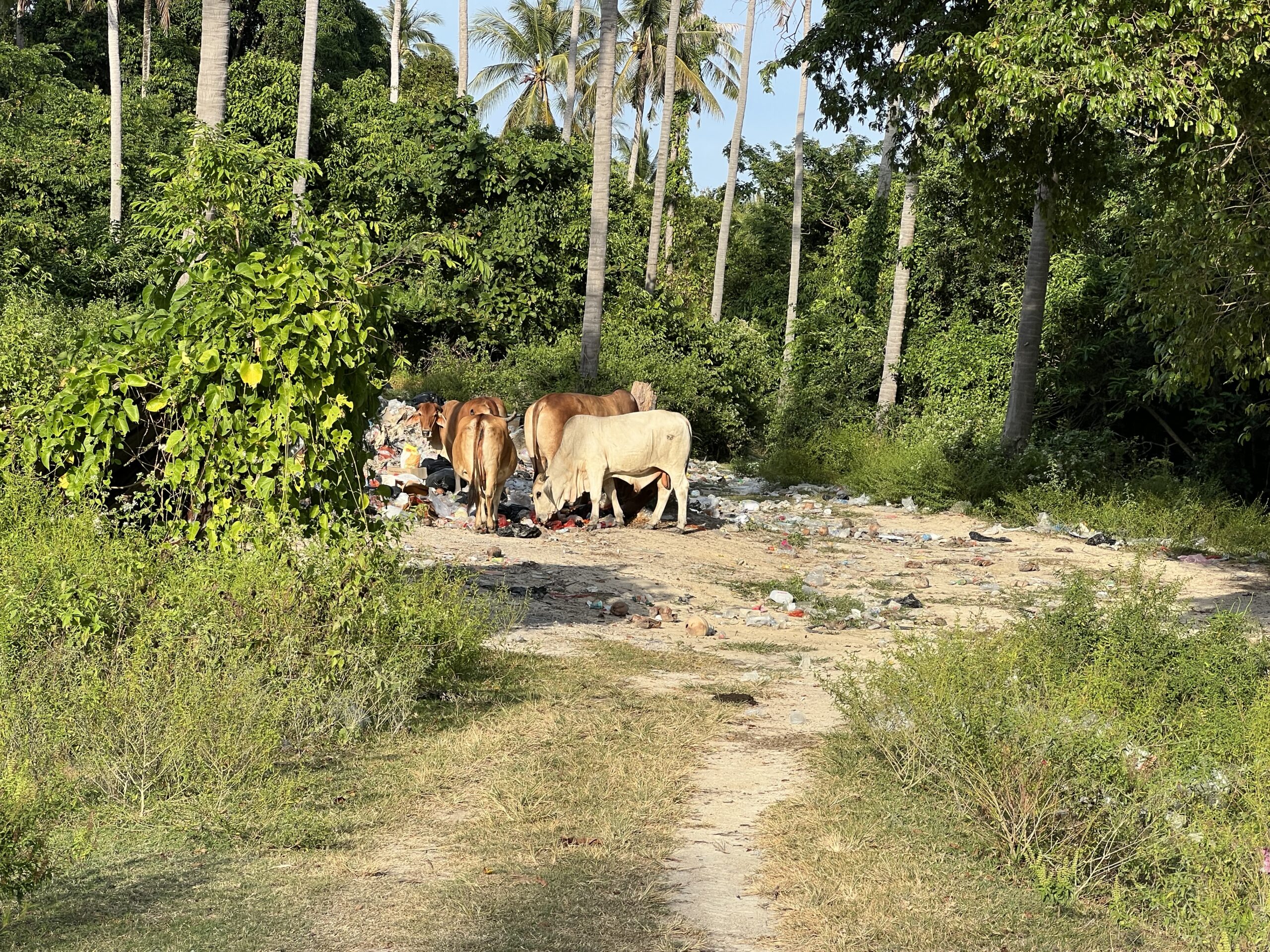Rubbish Realities: Thailand’s Waste Management Maze

Benjamin Cheong
Aug 17 2023
Visiting rural Thailand in May 2023, scattered trash along sidewalks and in fields just beside houses caught my attention. Thailand is currently struggling to manage rural waste in a sustainable or even safe manner.
One of the key factors hampering effective waste management is the country’s inadequate infrastructure. Instead of a national waste management system, each municipality is in charge of managing its own waste. Unfortunately, these municipalities often lack sufficient infrastructure to facilitate the collection, treatment, and disposal of all the waste their citizens produce. Furthermore, municipal waste management budgets from the government can be insufficient for the municipality to carry out their work, leading to the residents being charged for waste disposal services instead. This financial burden exacerbates illegal littering and dumping as individuals attempt to avoid additional costs. This issue is compounded by the fact that law enforcement is extremely lax on illegal littering and dumping as there simply is no easy alternative.
A second major hurdle is the lack of proper disposal. This issue can be broken up into two points: recycling and open burning. Often, waste is not separated at the source, making it much more difficult for the few recycling plants that exist to recycle effectively. Yet, this is not the primary issue. Throughout Thailand, in particular in the rural countryside, waste management consists of outdated disposal methods such as landfills and open burning that significantly pollute the surrounding air and soil. These methods not only pose immediate health risks to the community, but also greatly harm the environment via pollution and the release of greenhouse gasses.
These problems can primarily be attributed to a root cause: the lack of public awareness regarding the significance of proper waste disposal to safeguard the environment, especially in rural areas. Without such awareness, the Thai people do not realize the impact their littering and illegal burning is having on them, via rising sea levels, erosion, and drought, and therefore have no incentives to change their common practices.
Addressing these challenges requires a two-step approach. First, an effective waste management system must be put in place. This step requires the efforts of the Thai government in either increasing the budgets of municipalities or playing a more hands-on role in national waste management. Second, tackling the existing attitudes towards waste disposal is essential. By raising awareness on the effect their actions are having on climate change and its effects on them as a result, we can create an incentive for them to go out of their way to separate waste and properly dispose of it. In fact, a similar initiative has recently been announced by Huawei, in conjunction with UNESCO and the Ministry of Interior, in hopes of raising awareness on climate change in Thailand’s rural areas.
The order of these interventions is particularly pivotal. Prioritizing the establishment of a public waste management system lays the foundation for subsequent shifts in the norm. By addressing the structural deficiencies first, such as enforcement and infrastructure, Thailand can pave the way for a cleaner and more environmentally conscious future.
Want to learn more? See these additional resources:
- https://www.unescap.org/sites/default/files/Day%202.9_King%20Mongkut_Amrehn.pdf
- https://www.ide.go.jp/library/English/Publish/Reports/Ec/pdf/201903_ch04.pdf
- https://www.jstor.org/stable/pdf/resrep00812.11.pdf
- https://www.huawei.com/en/news/2023/12/thailand-greeneducation-tech4all#:~:text=Projects%20include%20digital%20power%20technologies,and%20remote%20areas%20throughout%20Thailand.






Leave a Reply
You must be logged in to post a comment.